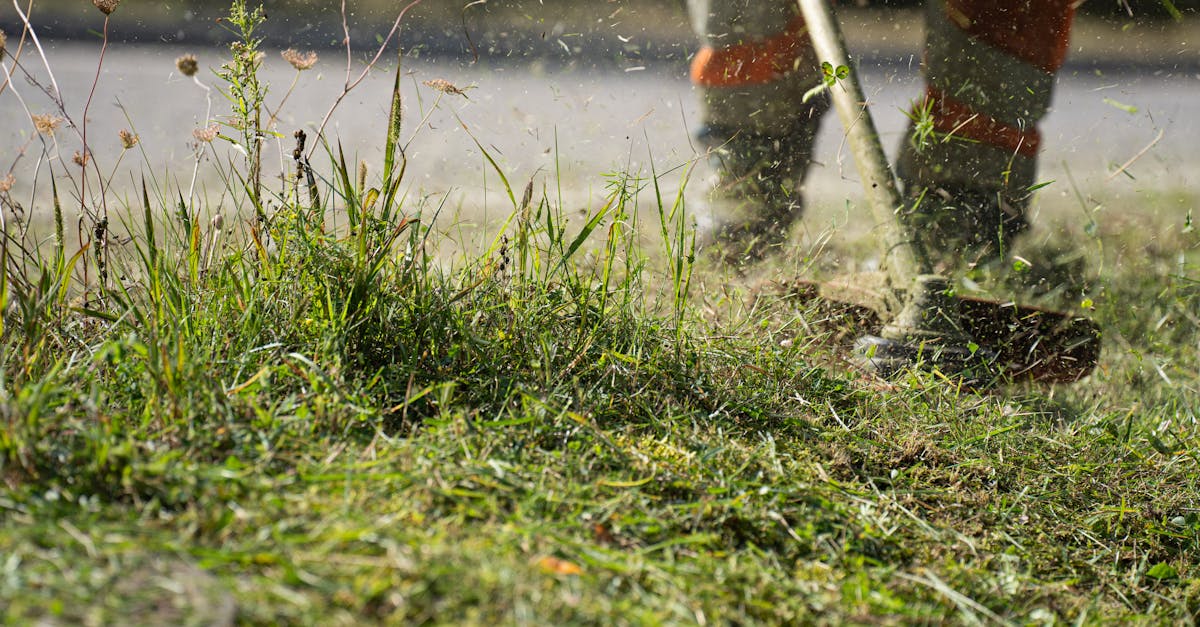
Lawn Care
Maintaining a lush and healthy lawn is a goal for many homeowners, but achieving this can often feel overwhelming. The secret to a beautiful yard lies in effective planning and execution, which is where Custom Lawn Care Plans come into play. By tailoring maintenance routines to the specific needs of your grass and soil type, you can promote growth and vitality while minimizing the risk of pests and disease. Such personalized approaches not only enhance the appearance of your yard but also contribute to a sustainable environment.
Incorporating custom lawn care plans into your lawn maintenance routine allows you to address the unique challenges that your space might present. From selecting the right types of grass to determining proper watering schedules and fertilization techniques, these plans can make a significant difference in the overall health of your turf. As you invest time and effort into developing a strategy, keep in mind that consistency and attention to detail are key elements that will ultimately lead to a vibrant and flourishing lawn.
Irrigation Strategies for Healthy Lawn
Establishing successful hydration methods is crucial for maintaining the lush grass. It includes knowing the demands for the yard based on aspects like environment, type of soil, and varieties of grass. Deep hydration each week is often recommended as it supports more profound root growth.
Additionally, timing is an important factor for effective lawn care. Irrigating at dawn is the best option to lower water evaporation and enable the grass to utilize hydration effectively. Using irrigation systems that offer a slow release of water might help keep soil moisture while preventing excess runoff. Monitoring the weather in addition helps you can hydrate the grass appropriately.
Tips for Efficient Irrigation Methods
Proper watering can be the crucial factor in maintaining a healthy lawn. Understanding correct amount of moisture the turf needs becomes vital. This is recommended to irrigate early in the morning when heat are cooler. Watering at this time enables the water to soak deeply into the soil prior to escaping in the heat of the day.
Moreover, adopting smart watering methods can aid reduce water while promoting a lush lawn. Think about using a soaker hose or drip irrigation system as a way to deliver water directly to the roots while minimizing unnecessary runoff. Monitoring how dry the soil is can also help determine when to irrigate again. By implementing these tips, you can guarantee a healthy and thriving lawn.
Selecting the Right Lawn Type to Fit Your Climate
Selecting the right grass type is crucial to ensure a lush turf. Different grass types perform best under specific climatic circumstances. For example, cool-season grasses like fescue grow well in northern regions, while hot-season grasses like Zoysia prefer hotter climates. Having knowledge of your local environment plays a key factor when making a choice which grass type to select.
Once you have a grasp on your conditions, the following step is to consider other factors that can influence your grass choice. Earth type, sun exposure, and irrigation availability all contribute in how well a certain grass type will grow. As an example, if you have poor soil, you might want to opt for grass varieties that are more tolerant to those conditions. Also, if your lawn receives full sun, opting for a grass that requires sunlight will help guarantee a more healthy landscape.
Factors when Choosing a Grass Variety
Choosing a right grass variety is often essential to attaining an vibrant lawn. Things to think about involve the climate elements in your location. Warm-season grass types of grass thrive in hot conditions, whereas cool-season flourishes best in milder weather patterns.
Another factor is your yard's usage. Heavily used need resilient types which are able to tolerate wear and tear. Furthermore, soil conditions and light conditions should be considered to ensure the chosen grass will thrive within its surroundings.
Organic Grass Maintenance for Environmentally Gardeners
Caring for the lawn using an organic way is not only help nature, but encourages the health of your yard. Employing organic fertilizers along with insect management methods that are safe for your individuals and animals can be a wise decision for anyone looking to reduce any impact on nature.
Applying sustainable practices like using compost lawn clippings to serve as mulch as well as installing native plants will enhance the health of your yard's look while protecting native species. Selecting native lawns that demand less water and are more tough to local conditions is an effective way to ensure a thriving lawn without excessive resource use.
Advantages of Choosing Sustainable for The Yard
Opting for eco-friendly practices for the grass offers numerous reasons. One advantage is the positive impact on the ecosystem. Eco-friendly practices reduces the use of harmful chemicals that can harm air and harm local wildlife. By implementing these practices, homeowners contribute to a healthier planet while enjoying a lush and vibrant grass.
A further advantage of going eco-friendly lawn care is improved soil health. Eco-friendly fertilizers encourage the growth of beneficial microorganisms in the earth, leading to improved nutrient availability for your lawn. Healthier soil results in increased drought resistance and reduced susceptibility to pests and diseases. In the end, going eco-friendly not only beneficial for the environment but also establishes a thriving and resilient grass.